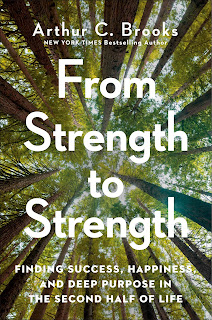Optimistic Nihilism Vs. Post-Nihilism With Mr. Simplicity
Optimistic Nihilism Vs. Post-Nihilism With Mr. Simplicity
Nihilism is the belief that life does not hold any inherent meaning or value. Essentially, nihilists believe that everything is meaningless, and there is no objective purpose or morality to our existence. This concept can be quite disheartening to many people, as it seemingly renders our efforts and accomplishments irrelevant. However, within nihilism, there are two opposing viewpoints that attempt to address this issue - optimistic nihilism and post-nihilism. In this essay, we will explore nihilism, optimistic nihilism, and post-nihilism, and discuss five practical applications of post-nihilistic ideas in our daily lives.
Nihilism is a term that comes from the Latin "nihil", which means "nothing". It is the belief that life is ultimately meaningless, and there is no objective moral or ethical framework by which to guide our actions. At its core, nihilism posits that anything we do, no matter how noble or valuable it may seem, is ultimately without meaning or purpose. Nihilism is generally seen as a negative worldview, as it undermines the human sense of purpose and meaning.
Optimistic Nihilism is a philosophy that attempts to take the bleak worldview of nihilism and spin it in a positive light. Optimistic Nihilists believe that life has no inherent meaning, but that this is actually a liberating thought. Without any imposed meaning or structure, we are free to create our own meaning and live life on our own terms. Optimistic nihilism is not about giving up on life or becoming apathetic towards it, but rather it is about embracing the freedom that comes from the absence of overarching meaning.
Post-nihilism is a philosophy that tries to address the shortcomings of both nihilism and optimistic nihilism. Post-nihilism acknowledges that life has no inherent meaning, but resists the idea that we should simply create our own arbitrary meaning. Instead, post-nihilism embraces the idea that meaning can only be created in context, and in relation to others. Post-nihilism seeks to create a new moral framework that is not based on objective truths, but rather on individual interpretations of meaning and context.
Five Ways Post-Nihilistic Ideas Can Be Used In Our Daily Lives...
1. Embracing ambiguity: Post-nihilism encourages us to embrace ambiguity and uncertainty, rather than seeking out concrete answers. This can help us to be more comfortable with the unknown and to approach life with a sense of curiosity and wonder.
2. Being present: Post-nihilism places a strong emphasis on the present moment, as this is where meaning is ultimately created. By being fully present and engaged with our experiences, we can create a deeper sense of purpose and fulfillment in our lives.
3. Cultivating relationships: Post-nihilism recognizes the importance of relationships in creating meaning and purpose. By forming meaningful connections with others, we can create shared experiences and a sense of belonging that can give our lives greater meaning.
4. Engaging with the world: Post-nihilism encourages us to engage with the world around us, rather than simply retreating into ourselves. By actively participating in the world and contributing to it, we can create a sense of purpose and value that transcends our own individual lives.
5. Recognizing the power of interpretation: Post-nihilism acknowledges that meaning is ultimately subjective and individual. By recognizing the power of interpretation, we can start to create our own meanings and values, rather than simply accepting those that are imposed upon us by society.
Nihilism poses a significant challenge to our sense of purpose and meaning. However, within nihilism, there are two opposing viewpoints - optimistic nihilism and post-nihilism. While optimistic nihilism seeks to embrace the freedom that comes from meaninglessness, post-nihilism tries to create a new framework for meaning that is more context-dependent and individualized. By embracing post-nihilistic ideas in our daily lives, we can cultivate a deeper sense of purpose and fulfillment, even in the absence of objective meaning. As post-nihilists, we can create meaning by engaging with the world, cultivating relationships, and embracing ambiguity and uncertainty. Ultimately, we have the power to create our own meanings and values, and to live life on our own terms. Let us embrace this power and create lives that are rich with meaning and purpose, no matter how insignificant they may seem in the grand scheme of things.




Comments
Post a Comment